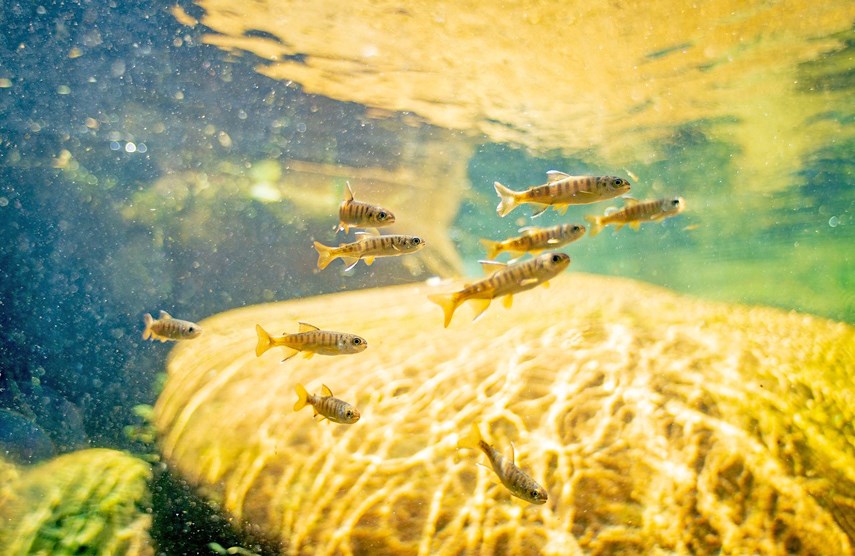, a new documentary by North В鶹ҙ«ГҪУі»ӯresident Fernando Lessa, premieres online next week.
“It’s just a beautiful story of how salmon have been brought back from extinction. They were almost gone in our urban waters,” says Lessa, who moved to Lynn Valley by way of Brazil in 2016.
As soon as he moved here, Lessa, an experienced nature photographer by trade, became enamoured with Metro Vancouver’s local waterways and the salmonids that populated these once bustling spawning grounds and salmon run spots.
After a few years spent photographing these natural habitats in watersheds across the region, which he touted as “the first documented photography project featuring salmonids in the urban environment” in 2019.
Now, he says he’s done the same thing with his documentary.
“Film just opens up a new dimension in terms of connecting with people,” he says. “It’s much more accessible.”
In large part, the short film traces the stories of Metro streamkeepers and their passion and dedication to rehabilitate ecosystems, ultimately turning many creek beds, streams and rivers into hospitable environments for salmon.
“Those people put in so much restoration and dedication and passion for so many years before salmon were brought back,” he says, highlighting an interview in the film with conservationist Elmer Rudolph, who spent decades restoring the Brunette River into a habitable waterway for salmon.
The documentary also highlights British Columbia’s once booming cannery industry, during a time when salmon runs were more plentiful and businesses consolidated around the commercial practice looking to make a profit. And before that of course, was an era were First Nations maintained stewardship over marine resources, notes Lessa.
“ to show how salmon were brought into the picture. The only reason people settled in В鶹ҙ«ГҪУі»ӯ– First Nations or white people – was because of salmon. It used to be so common and plentiful, and now they are all gone,” he says.
But while the canning industry has all about disappeared, more and more urban salmon have been returning to local waterways over the years due to the good work of streamkeepers, environmentalists and other groups.
Lessa filmed 32 rivers, creeks and waterways around Metro В鶹ҙ«ГҪУі»ӯfor his documentary, including Brunette River, Stoney Creek and Still Creek in Burnaby, the Fraser River, and Seymour and Capilano rivers, as well as Lynn Creek, on the North Shore.
“People have to know that they’re there and it’s so close and it’s so connected,” he says.
The Urban Salmon is premiering online on March 4 at 7 p.m. The free event will be followed by a roundtable discussion. After the premiere, the film will be available to watch for free online. Visit for more info.

